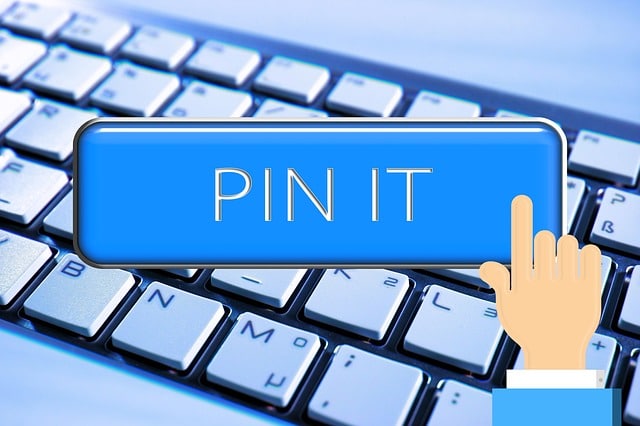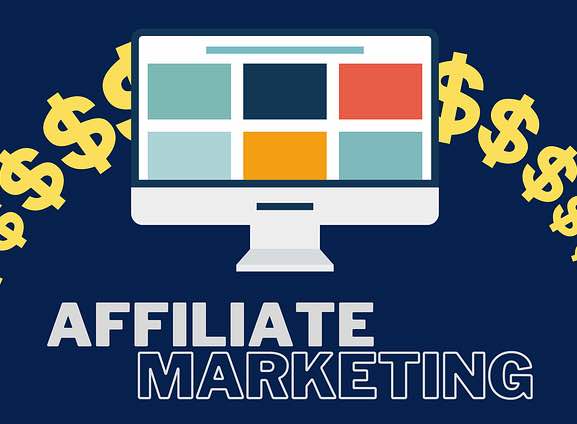Is your Pinterest marketing serving your business in the way you had hoped? I’ve had a lot of frantic emails from people who are worried about all their Pinterest statistics (e.g., monthly viewers, followers, etc.)
Let’s chat about key performance indicators for Pinterest marketing as it relates to your business. I’ll give you a framework to evaluate your Pinterest marketing strategy and plan your direction for 2022.
You need to ask a set of key questions and look at analytics to answer them.
3 Questions to ask about Your Pinterest Marketing Strategy
Let’s get started with the first of three essential questions that guide my thoughts while I’m evaluating the past year.
1. Why is Pinterest important to marketing my business?
There are some important things to consider with this question.
First — what goal does Pinterest help you reach in your business? Is it:
- product sales?
- email conversions?
- traffic?
- affiliate sales?
List all of your goals and then circle the top three that you think Pinterest helps you reach.
Second — remember that Pinterest is a search and discovery network that requires a long-term investment for marketing. You might be looking for new buyers, new readers, and people to start following you on other channels. Keep in mind that it’s more like Google and Youtube in the marketing sense.
For me, Pinterest marketing serves our beginner Pinterest marketer avatar. These are people who are curious about Pinterest marketing. They want to know the “how-tos”.
You Need Clear Pinterest Marketing Goals
I am very clear about my Pinterest marketing goals. My goal with Pinterest is not to gain clients. We don’t get clients through Pinterest. Part of that is because we haven’t targeted clients on Pinterest. Our clients find us primarily on Google.
Pinterest brings us the people who are going to read our blog. So, our goal with Pinterest are to use it for educating marketers who are new to the Pinterest platform. It serves us by driving traffic and attracting email subscribers.
Once you know why Pinterest is important to you, it’s time to answer the second question.
2. What are your Key Performance Indicators (KPIS)?
- Do you want clicks to your website for affiliate sales or ad revenue?
- Are you looking for email subscribers?
- Do you want tripwire sales (a compelling, low-priced offer that’s designed to turn a prospect into a customer)?
- Are you looking for video views?
- Is it important to grow your followers?
- Are you looking for brand partnerships?
What I like to do is list my top three to five KPIs. Identifying the primary statistics that you will use determine success helps you keep focused when you feel like you’re getting off track.
Why do I only list three to five?
There’s a lot of discussion in the industry about the problem of having too many goals. When that happens, nothing is important because everything is deemed important. Three to five KPIs is a good number to aim for.
If you have a set of predefined KPI that you’re focused on, you’ll be much more focused. And I believe your content will be better as a result. You’ll be determined to reach that goal number.
Pinterest has changed so much in the last year, so I know you might be saying, “Well, my goal for Pinterest in 2020 was completely different than in 2021 and now it’s going to be completely different in 2022.”
That’s fine. Goals don’t have to be static. They can change.
As long as you understand why you’re using the platform and what you want to get out of it, you’re less likely to be bumped off track when somebody from another group comes in talking about how many clicks and impressions they’re getting. It’s easy to get distracted if you don’t have a list of clear success indicators.
My main goals with Pinterest are:
- driving traffic
- attracting email subscribers
- cultivating awareness of my brand.
When I say brand awareness, I mean that I want people to come to my website and listen to my podcast. I want to begin the conversation with them.
Keep your eyes on your own goals. When you are clear about your own goals, then you can evaluate how well Pinterest is helping you meet those goals.
That leads us to the next question in our Pinterest strategy evaluation process.
3. Did Pinterest help you accomplish last years goals?
Plan at least two hours for finding the numbers that help answer this question. Here’s how I like to do it.
Open up Pinterest, your Pinterest scheduling tool (e.g., Tailwind or Planoly), and Google Analytics. I like to start with Google Analytics.
GOOGLE ANALYTICS
On the main page of Google Analytics, I follow this path: Acquisition–>All Traffic–>Referrals.
At the top right, change the beginning date to January 1 and the ending date to the current day. Look at the total number of sessions. I also like to change the date to show the previous year and compare and contrast the two years.
I look for spikes in viral traffic and overall trends. It helps to compare year over year (last year to this year). Keep in mind that 2020 was odd for a lot of people, especially food and DIY content creators. We had such a huge boom in 2020. Sometimes we also like to compare 2021 to 2019.
I look at the peaks and valleys for a holistic view of trends for high times that are consistent for your business. I also look at pins that might have fallen out of search, specifically pins that are driving traffic. This might explain why traffic has dropped overall. Make a note of your findings and consider creating a new pin image for that post to see if you can give it a boost.
There was a super frustrating shift in Google Analytics as of January 1, 2021, that has changed how much data we can see on these individual pins. So you’re going to have to do a little more investigative work into whether or not the pins have fallen out of search or if it’s just a Google Analytics reporting change.
After I’ve drilled down into Google Analytics I head over to Tailwind next.
TAILWIND
I use the Pin Inspector tool to view the all-time saved pins. When users save a pin, it signifies that they found the pin valuable enough to keep for later and they plan to revisit it. It helps you understand what is getting engagement.
Finally, I look at Pinterest analytics.
PINTEREST ANALYTICS
Inside Pinterest analytics, I set the filter for the date range of January 1 to whatever today’s date is so I can view a full year.
I take note of
- pin clicks
- outbound clicks
- saves.
I’ll glance at impressions but to be honest, I feel like impressions have been all over the map this year. I’m not paying attention to this number because it doesn’t give me much information about conversions. Some people find impressions to be a great indicator of where they’re at but for others, like me, that might not be true. So just consider what’s important to you.
Go back to your KPIs. What key indicators are going to tell you whether what you’re doing on Pinterest is working?
Pinterest has said recently they want the monthly viewer number to be the metric that you look at. What’s interesting about that metric is that it’s located on the front of your profile (not in analytics). That monthly viewer number is a compilation number of profile visits and people who viewed your pins. It’s this big overarching number that sounds like a sliding scale from what we know.
It’s not something that you can see in analytics. You can’t drill down on the monthly viewer number so it feels kind of frustrating to hear Pinterest say this is really important.
If you feel like you’ve fallen down a rabbit hole and getting frustrated looking at all these numbers within your Pinterest analytics account, go back to the basics.
Ask yourself:
- What’s most important to you?
- What are you trying to figure out?
- Which of these numbers will tell you if you’re on the right track?
Don’t overthink it.
SOCIAL NETWORK REFERRALS DRIVING TRAFFIC
Finally, I return to Google Analytics and look at my total number of social sessions for the year. Over this past year, my sessions were down on Pinterest. Here’s where my website session data for 2021 so far:
- Pinterest: 32,000 sessions (which is the lowest it’s been in a while)
- Facebook: 8,000 sessions
- Instagram: 2,000 sessions.
If my goal or KPI is strictly number of website sessions, then Pinterest sessions win the day. We use Facebook primarily to communicate with our membership community. Instagram is a place where we focus on building connections rather than drive traffic.
After viewing the data, I ask myself:
Is Pinterest still worth it for me?
My answer is absolutely. 32,000 sessions is for sure worth it to me!
You need to ask yourself the same questions and determine your own answers.
So there you have it. This is the basic framework of how to evaluate your Pinterest marketing strategy.
PINTEREST MARKETING IN 2022: SET YOUR PLAN
Now that we have all these numbers it’s time to look towards 2022 and ask yourself these questions:
Is Pinterest still relevant for me?
I just answered that for myself.
Does it still make sense to invest in Pinterest?
It does for me and actually, I might level up. In fact, I’m going to be investing more in Pinterest ads.
How many dollars do I want to put behind Pinterest next year and how do I want to spend those dollars?
Here are the options for spending money you allocate to Pinterest marketing:
- a scheduling tool
- courses or membership sites
- products (e.g., Pinterest dashboards, templates, tracking spreadsheets, etc.)
- services (Pinterest management)
- team members
- Pinterest ads
How do I want to continue to track Pinterest metrics?
Determine if there’s a new KPI you should be tracking in the coming year
At the end of the year, what do I want to see happen in my business?

So that’s the entire framework process we use to conduct a year-end evaluation of our Pinterest marketing strategy.
I hope it helps you evaluate your Pinterest marketing strategy as we wrap up 2021.





